
People have remained disgusted at the food offerings of astronauts since the first ever expedition into space, and while the ‘perfect meal’ doesn’t sound too bad by Earth standards, it’s not always what’s on the International Space Station (ISS) menu.
Things, at least from the outside, have looked quite bad for astronauts Barry “Butch” Wilmore and Sunita “Suni” Williams, as the pair have been stranded on the ISS since June in what was supposed to be just an eight-day trip.
A SpaceX Dragon craft is due to pick them up in February 2025, but many have commented on the pair’s weight, expressing particular concern over Suni Williams who has appeared to be rather gaunt in photos shared by NASA.
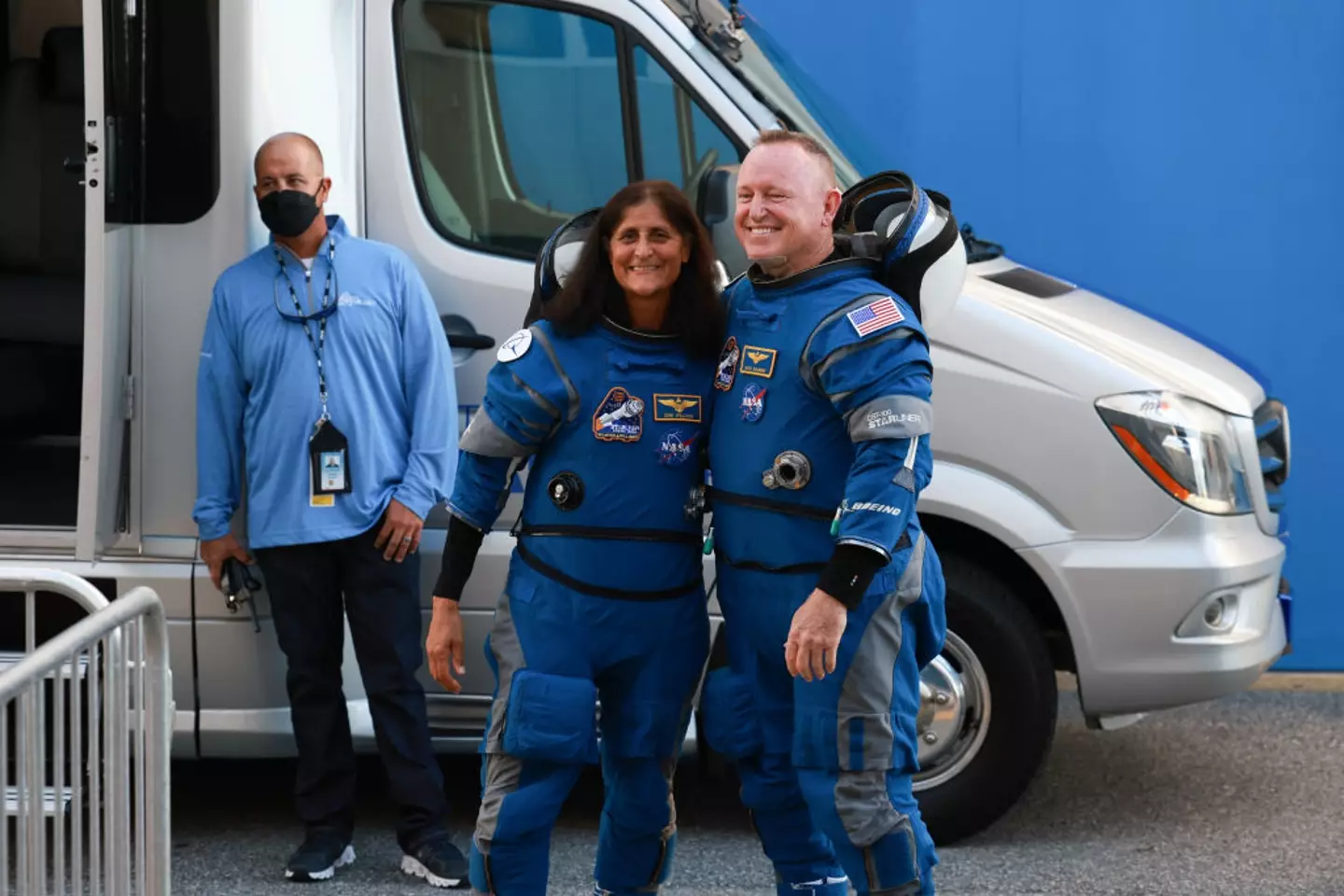
As if things couldn’t get any worse for the stranded duo, it has now been revealed that they have been resigned to a rather modest diet, including cereal, dehydrated casseroles, and freeze-dried soup – only the latter is made with their own urine.
Before you recoil in disgust, this is due to the recycling technology in the ISS that turns the sweat and urine of the astronauts into fresh water, ensuring that little is wasted.
When a stay in space gets extended by nearly a year you are bound to have to make some concessions, but I doubt many would imagine that this would involve eating your own recycled pee.
NASA have assured that, despite not being the most glamorous of meals, the food available to the astronauts remains rich with nutrition and enough to sustain the health of those on board the ISS.
Each astronaut is allocated around 3.8lbs of food every single day, with plenty of reserves stocked in case of delays like the one occurring right now.
Suni Williams has quelled any worries over her health thankfully, expressing: “There are some rumors around, outside there, that I’m losing weight and stuff. No I’m actually right at the same amount.”
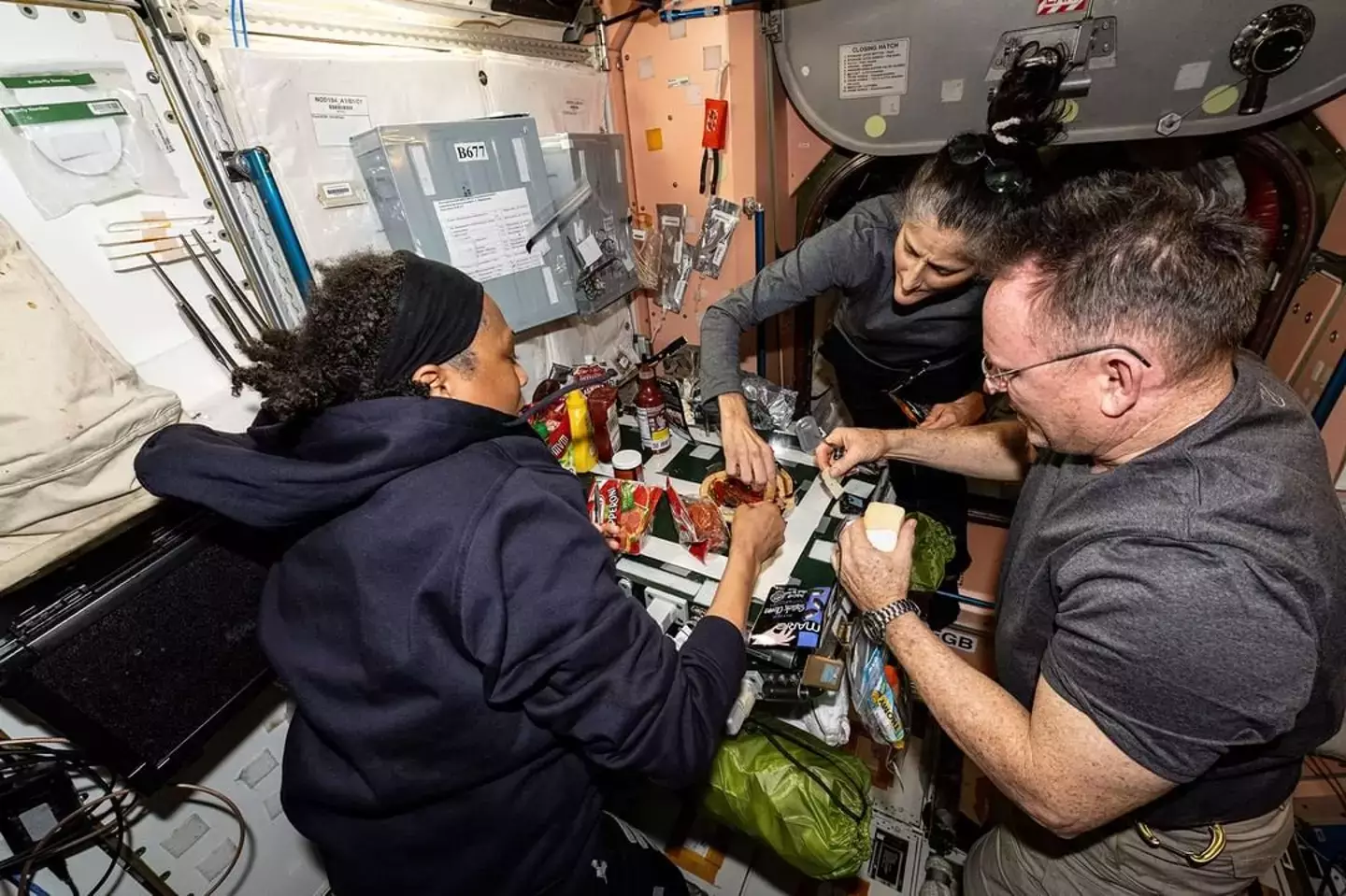
Wilmore and Williams have previously been seen eating pizza (@iss/Instagram)
Health experts have revealed that the likely cause of the worries is down to the calorie deficit that all astronauts will likely encounter, as you burn significantly higher amounts of calories while in space.
This affects women particularly more than men, which is why Williams appears to be more ‘unhealthy’ than her crewmate Wilmore, so it’s good to know that the pair are going to be alright.
It must be hard going from a diet of pizza to one mainly full of pee soup though, but you can’t ask for much better while stuck in space.
F
That might change with SpaceX’s fancy space hotels, but for now, space is a dry domain for NASA astronauts.
While astronauts might want to celebrate big events like birthdays or new crew, alcohol is strictly forbidden on the International Space Station. Daniel G Huot, spokesperson for the Johnson Space Center, explained: “Alcohol is not permitted onboard the International Space Station for consumption. Use of alcohol and other volatile compounds are controlled on ISS due to impacts their compounds can have on the station’s water recovery system.”
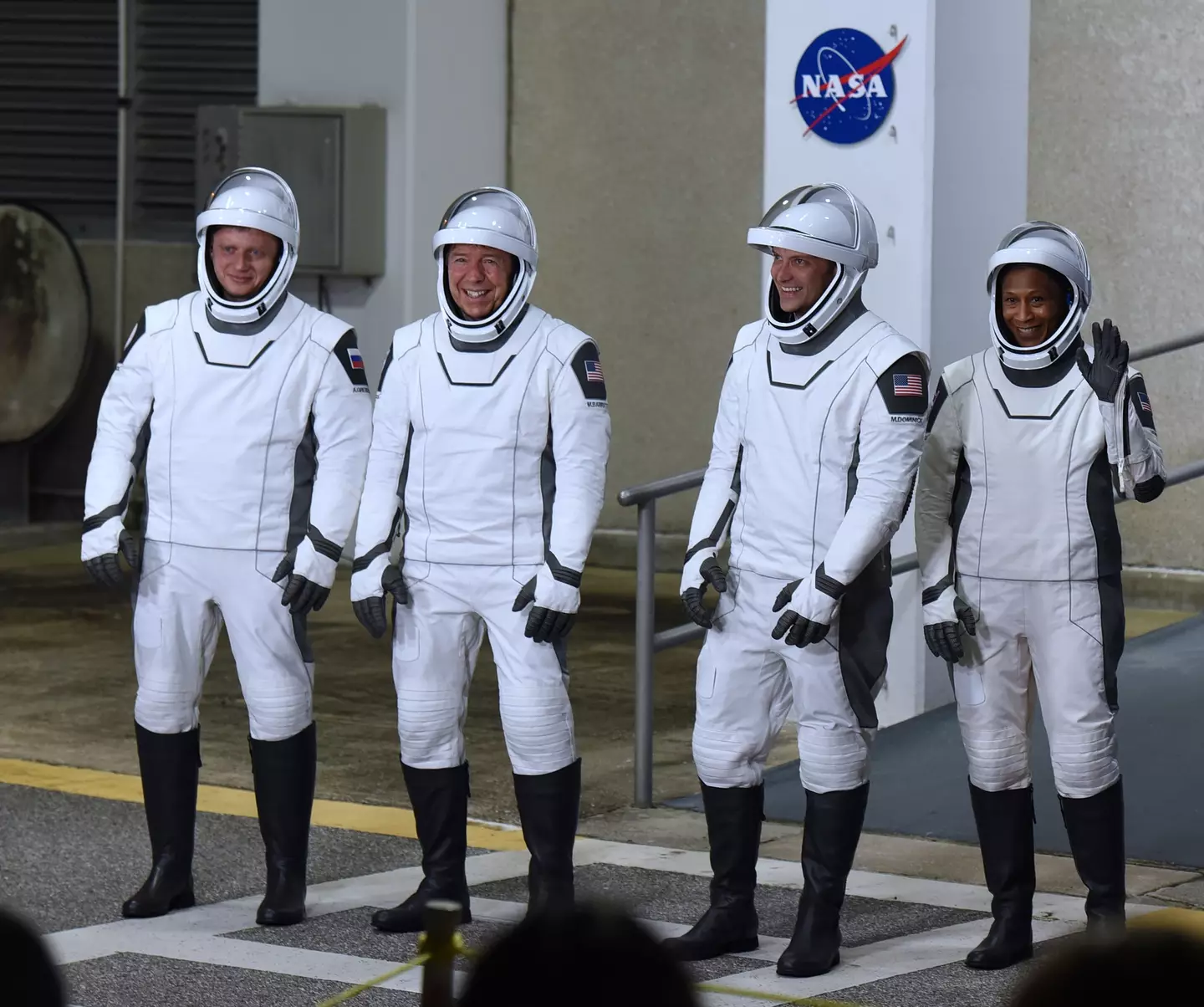
More than just a crisp glass of Chardonnay being panned, astronauts on the ISS aren’t even allowed products like mouthwash or perfume because they contain alcohol. The idea of destroying millions of dollars worth of equipment for a quick shot at Christmas simply isn’t worth it.
Like how you wouldn’t let a drunk pilot fly a plane, there are also strict rules that astronauts aren’t allowed to drink any alcohol 12 hours before their mission. Still, a pair of tipsy cosmonauts were cleared for takeoff in 2007 when safety concerns were raised that they were ‘intoxicated.’
NASA had toyed with allowing astronauts to drink sherry (because it’s more stable than other alcohol) during Skylab missions in the 1970s, but as well as it ‘prompting’ the gag reflex in zero-G, the idea was scrapped when an outraged public learned about the potential of boozy astronauts.
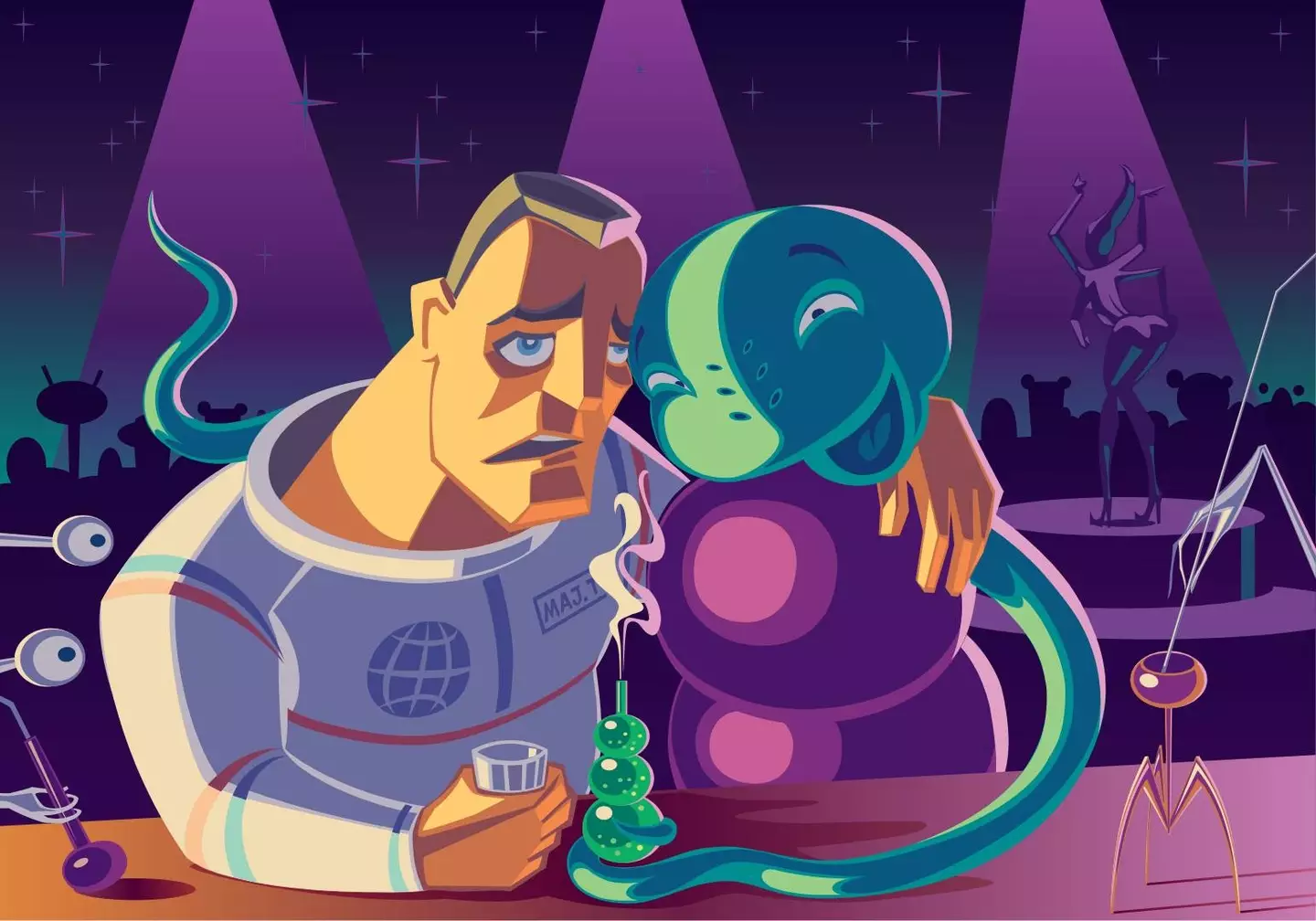
NASA astronauts are still a long way away from getting drunk in the club (romanmoris / Getty)
Things are a little different when it comes to Russian spaceflights, and with doctors recommending astronauts on the Mir space station drink Cognac to help keep their immune systems healthy, they’re known for the odd tipple. Still, the ISS remains dry.
There’s also a scientific reason you can’t drink a beer in space, with carbonation making it impossible. When up in the stars, there’s no gravity to contain the fizz, meaning the bubbles are distributed throughout the liquid. NASA itself warns that astronauts can’t expel the carbon dioxide gas through traditional methods like a burp, and with the bubbles being trapped in your digestive system, there would be some serious side effects.
The ISS continues to look at the potential effects of alcohol on astronauts in space, but unfortunately for those who want to get their buzz in space, these experiments don’t involve excessive consumption.
Despite all of this, Buzz Aldrin has said in interviews and his book that he had a small sip of communion wine before stepping out onto the surface of the Moon. That sounds like one small sip for man, one giant hangover for mankind.
The water in oceans, rivers and lakes would disappear, leaving Earth with no water supply, not to mention that we probably wouldn’t survive.
And in space, were it not for gravity, there would be no planets, stars or even galaxies.
Gravity is what causes all these objects to form in the first place and prevents them from falling apart.
Moreover, the strength of gravity depends on how big the objects are and how far apart they are. As we were taught in schools, gravity is an invisible force that keeps everything grounded: ‘What goes up, must come down.’
But, did you know that it isn’t the lack of gravity in space that makes astronauts float? In fact, it’s the opposite.
.jpg)
There is actually plenty of gravity in space (quantic69 / Getty Images)
On Earth, gravity pulls objects towards the ground at a speed of 9.8 m/s² – the number is based on Earth’s size and mass. The further away you get from Earth, the weaker its gravity becomes.
And as far out as the International Space Station (ISS) is, it still feels about 90% of Earth’s gravity.
According to Space.com, the ISS is actually located in the thermosphere, a layer of Earth’s atmosphere that begins around 56 miles (90 km) above the surface and stretches up to 310–620 miles (500–1,000 km).
Here, temperatures can get extremely high, but the air is very thin.
For context, the thermosphere sits above the mesosphere, where meteors burn up as they enter because Earth’s gravity pulls them in, causing intense friction with the atmosphere.
In a vacuum, though, things are a little different. All objects fall at the same velocity, something known as ‘free fall.’
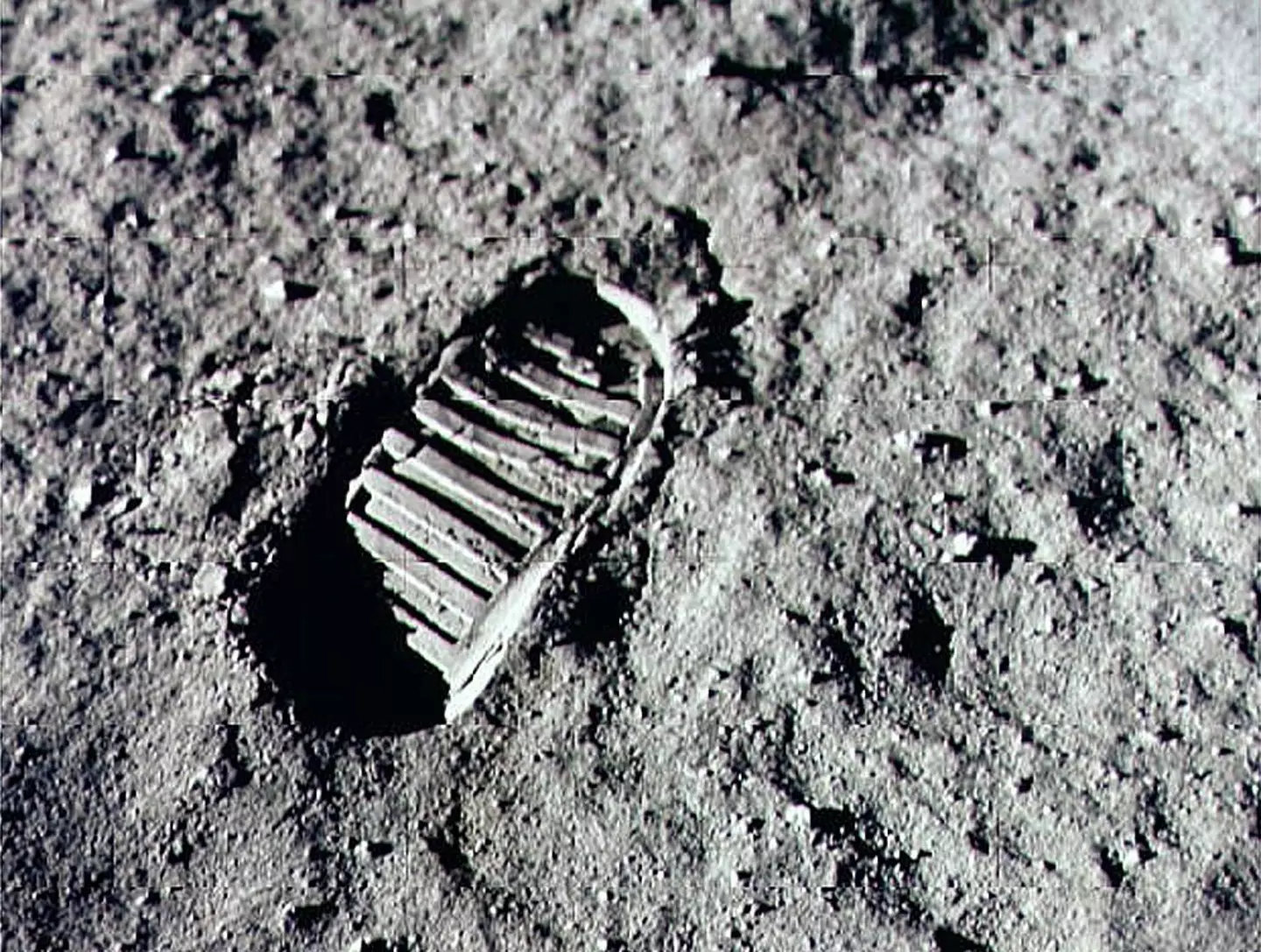
Lack of gravity causing astronauts to float in space is a big misconception (NASA / Handout / Getty Images)
This is completely different to the classic feather and brick experiment if you remember from science days.
If a person drops a brick and a feather, air will make the feather fall more slowly. But if there was no air, they would fall at the same speed.
For those in space, as US space agency NASA puts it: “The spacecraft, its crew and any objects aboard are all falling toward but around Earth. Since they are all falling together, the crew and objects appear to float when compared with the spacecraft.”
And, believe it or not, they happen to be moving forward at a pretty fast velocity, 17,500 miles per hour (over 28,000 km per hour) to be exact. This speed perfectly opposes the force of gravity that’s pulling them towards Earth, allowing them to ‘float.’
Space remains still a confusing place full of unknowns, and despite countless expeditions to and from the International Space Station issues are still being encountered by astronauts.
Recent expeditions have seen astronauts dramatically lose weight while being suspended in space, but while that has been largely explained by science, this particular incident appears to baffle even NASA.
Following an seven month long expedition, the four NASA Crew-8 astronauts that returned to Earth upon SpaceX’s Dragon capsule were immediately admitted to hospital – and for no apparent reason.

Crew-8 embarked on their expedition back in March 2024 (Paul Hennessy/Anadolu via Getty Images)
These included three American astronauts – Michael Barratt, Matthew Dominick, and Jeanette Epps – alongside Roscosmos cosmonaut Alexander Grebenkin.
Still, however, over two weeks after they returned to Earth, nothing has been disclosed surrounding the reason why the group were all admitted to hospital.
Michael Barratt detailed at the Johnson Space Center in Houston that “In the fullness of time, we will allow this to come out.”
“Space flight is still something we don’t full understand,” Barratt continued, “We’re still piecing things together.”
There have been further clues from other members of the Crew-8 expedition, with Matthew Dominick alluding to his own health issues post-arrival.
Dominick revealed that one of the most difficult things after returning back to Earth is simply sitting in a hard chair, as reported by The Guardian:
“I remember like the third or fourth day after we got back, we were sitting outside on our patio, with my family eating dinner […] but I couldn’t sit on that hard chair any more. I just laid a towel down on the ground.”

The effects of Crew-8’s seven month expedition are yet to be uncovered (Joel Kowsky/NASA via Getty Images)
Of course, people on social media have their own theories, but they do appear to respect the astronauts’ supposed desire for privacy.
“It’s their personal medical history,” one commenter explains on a post in the r/space subreddit, “You’re not obligated to share that.”
Another user has theorized that this incident might perhaps have something to do with recent weather events: “This crew did spend their mission on orbit during one of the most intense solar storms in decades. I’m wondering if this has something to do with it?”
As NASA themselves remark there is still so much that we don’t know about space so something as supposedly ‘unconnected’ as a major storm on Earth could have an effect on the astronauts – at the very least in that it delayed their return back home.
They will have, however, received quite the excellent view of the storms while on board the International Space Station, so I don’t suppose they can complain too much.
More than just the emotional toll of flying hundreds of miles above your loved ones, zooming to the cosmos is physically exhausting as well.
Concerns were recently sparked when images of stranded astronauts Barry “Butch” Wilmore and Sunita “Suni” Williams went viral.
Wilmore and Williams were supposed to go on an eight-day mission back in June, but due to a fault with their Boeing Starliner, they’re now ‘trapped’ aboard the International Space Station until February 2025.

Wimore and Williams are trapped on the ISS until February 2025 (Houston Chronicle/Hearst Newspapers / Contributor / Getty)
While the pair have admitted to facing ‘tough times’ because of their unexpectedly extended stay, they seem in high spirits.
Williams has now clapped back at concerns about her appearance and apparent weight loss, telling viewers in a NASA live video that she’s put on muscle.
She assured those watching: “There are some rumors around, outside there, that I’m losing weight and stuff. No, I’m actually right at the same amount.”
Williams said it feels like the opposite and added: “My thighs are a little bit bigger, my butt is a little bit bigger. We do a lot of squats.”
She maintains that her change in appearance was due to a ‘fluid shift’: “I think things shift around quite a bit, you probably heard of a fluid shift. Folks in space you know, their heads look a little bit bigger because the fluid evens out along the body.”
It’s true that during spaceflights, blood and fluid shifts from the lower parts of your body to the upper areas, which can sometimes cause the appearance of a puffy face and thinner legs.
“Her cheeks appear a bit sunken – and usually it happens when you’ve had sort of total body weight loss. I think what I can discern by her face and her cheeks being sunken in is that [she] has probably been at a significant [calorie] deficit for a while.”
As for why we might be noticing a difference in Williams when compared to Wilmore, a 2014 NASA study found that women tend to lose more blood plasma volume when compared to their male counterparts during a spaceflight. This can lead to a temporary increase in a woman’s metabolic rate, which increases calorie burn and weight loss. Still, Williams assures everyone she’s fine and has been enjoying a varied diet including Turkish fish stew and olives.




